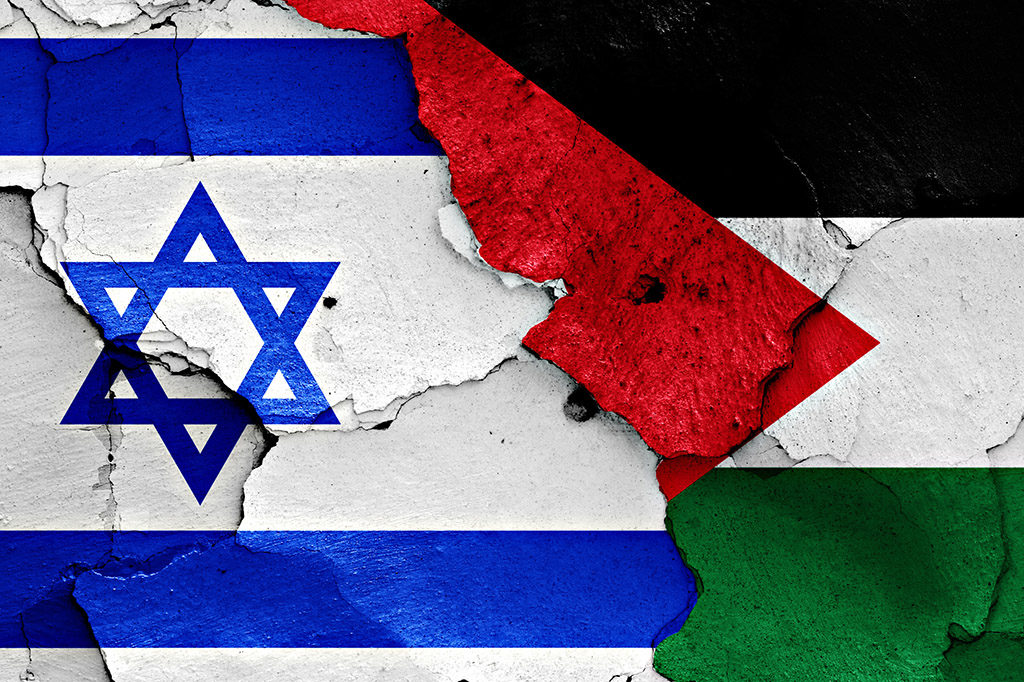IN THE MEDIA
An Israeli-Palestinian peace requires the right sort of pressure
February 26, 2017 | Colin Rubenstein & Jamie Hyams

Colin Rubenstein & Jamie Hyams
This article appeared in the Canberra Times and the Age Online.
26 February 2017
To read Mark Kenny’s analysis of Israel and Palestine (“Blind support for Israel unhelpful”, February 19), one would think the West Bank was a place where arrogant, lawless Israelis tormented and oppressed innocent Palestinians almost for sport, while steadily undermining the only real chance of peace: the two-state resolution. The good news is that reality is somewhat different. The bad news is that peace will still be difficult to achieve, just not for the reasons Kenny gives.
Israel captured the West Bank in a defensive war in 1967 and, when its offer to exchange land for peace was unequivocally rebuffed by the Arab League, began establishing settlements in the area. This was partly for the need for security, given the hostile intentions and actions of its neighbours, and partly to allow some Jews to live in places that had Jewish communities going back hundreds if not thousands of years, until the Jordanians ethnically cleansed them in 1948.
Jerusalem, which has always had a substantial Jewish population and been the centre of the Jewish world, was annexed. The United Nations passed the pivotal Security Council resolution 242, requiring Israel to withdraw from territory in return for peace, with the borders to be negotiated.
Under the 1993 Oslo accords, the Palestinians finally accepted Israel’s existence, and the Palestinian Authority was formed. Ninety-five per cent of West Bank Palestinians now live under the authority’s rule. Travel between Israel and the West Bank was relatively unfettered, and many Palestinians worked in Israel, travelling home to the West Bank each night. In 2000, then authority president Yasser Arafat infamously refused the Camp David offer of a Palestinian state and launched the second intifada, characterised by widespread terrorism inside pre-1967 Israel, most notably suicide bombings. The terrorism killed more than 1000 Israelis and maimed thousands more.
It was in those circumstances that Israel set up the checkpoints to monitor the movement of terrorists, and the security barrier, which for most of its length is a fence, and is only a wall where Palestinian terrorists were in the habit of taking pot shots at Israeli civilians. To claim, as Kenny does, that the barrier has the same intent as did the Berlin Wall is laughable. The barrier was erected to save lives by keeping terrorists out, and has been markedly successful. The Berlin Wall was to keep a captive population in. The checkpoints between Palestinian towns are now largely non-existent – they are just at the entries to Israel.
Despite the rebuff at Camp David, and the terrorism, Israel again offered the Palestinian Authority a state on increasingly generous terms in 2001 and 2008, only for the authority to again walk away. A unilateral total Israeli withdrawal from Gaza, intended to allow the Palestinians there to rule themselves as a peaceful entity alongside Israel, instead resulted in a Hamas takeover, more than 10,000 rockets and mortars, terror tunnels and three wars.
Since Benjamin Netanyahu resumed power in 2009, he has repeatedly offered to negotiate without preconditions, repeatedly confirmed his support for a two-state peace, and instituted goodwill measures including an unprecedented 10-month freeze on building in settlements and releasing Palestinian prisoners who have killed Israelis. Palestinian Authority President Mahmoud Abbas, however, has refused to negotiate in good faith. US Middle East envoy Martin Indyk has said that, in 2014, Netanyahu was sweating bullets to make peace, but Abbas just walked away.
The settlements, as even Palestinian chief negotiator Saeb Erekat has admitted, occupy less than 2 per cent of the West Bank. Furthermore, the vast majority of settlers live in blocs that it is generally accepted Israel will retain as part of land swaps in any peace deal. Israel has not established a new settlement since 1999, and the settlements have hardly expanded beyond their geographic boundaries since 2003, while population growth has not even kept pace with natural growth. Settlements did not prevent the previous Israeli offers of statehood, and they would not prevent a two-state outcome if the Israelis had a genuine peace partner.
It’s true, as Kenny writes, that Israel demolishes illegally built Palestinian structures but most countries, including ours, demolish illegally built structures, and Israel also demolishes illegal structures built by Jews.
The Netanyahu government still supports a two-state peace, but its concerns about the present circumstances are understandable. If Hamas was to take over the West Bank as it did Gaza, the rockets would hit Israel’s population and economic heartland, and its airport, and the country, would be shut down. Meanwhile, the Palestinian Authority, Israel’s supposed peace partner, demonises Israel internationally, incites its people against Israel with false claims of Israeli intentions to take over the Temple Mount, and rewards terrorists by lionising them and giving them and their families generous lifetime pensions.
Kenny is ultimately correct that serious international pressure is needed for progress towards peace, but that pressure must be brought to bear on the Palestinians to cease their destructive behaviour, to genuinely accept Israel’s right to exist in peace and to negotiate in good faith, if they are genuine about wanting a two-state outcome.
Dr Colin Rubenstein is executive director of the Australia/Israel & Jewish Affairs Council and previously taught Middle East politics at Monash University. Jamie Hyams is a senior policy analyst at the council.
Tags: Israel





